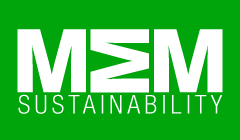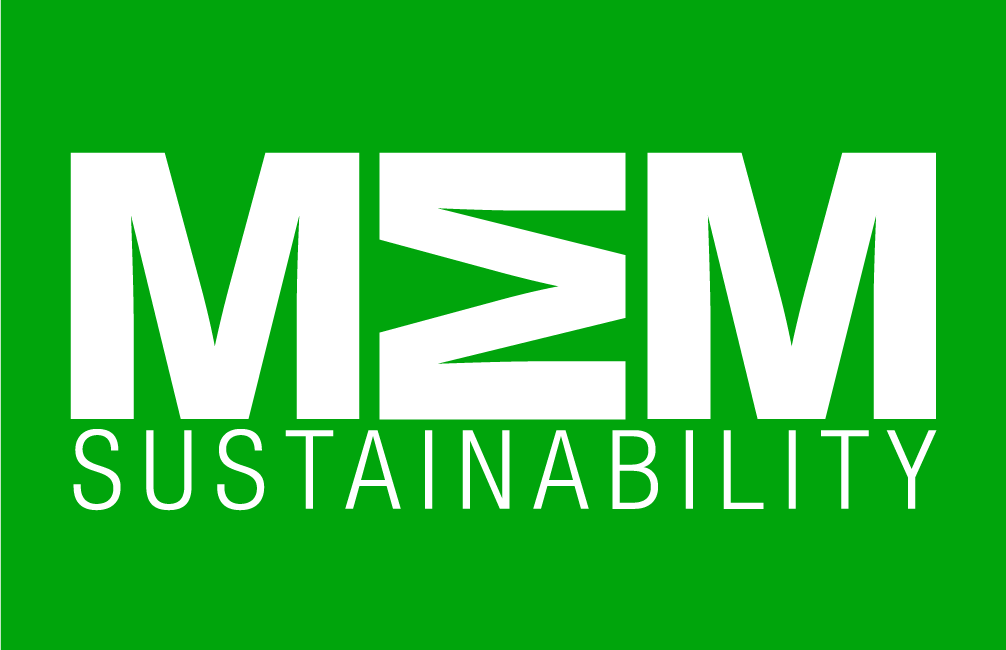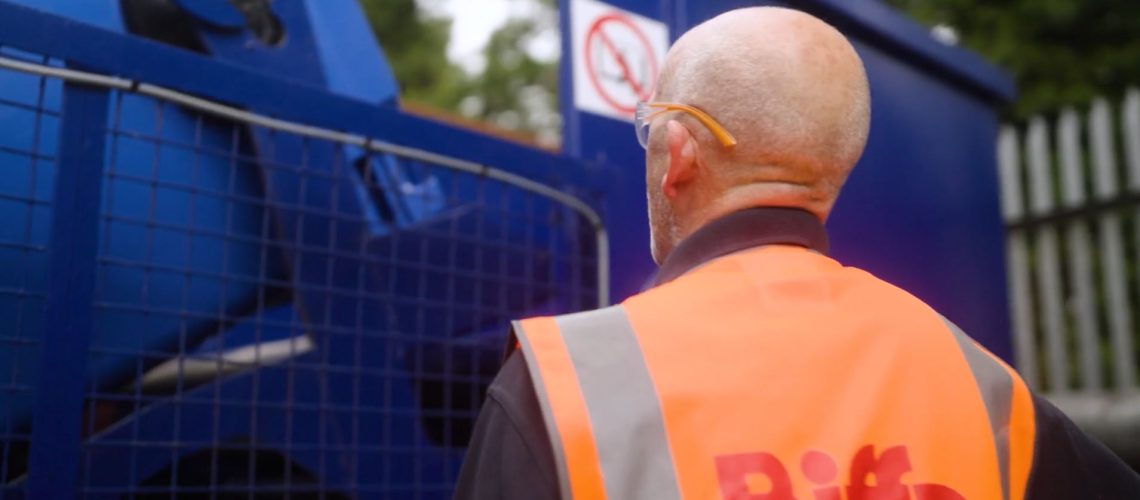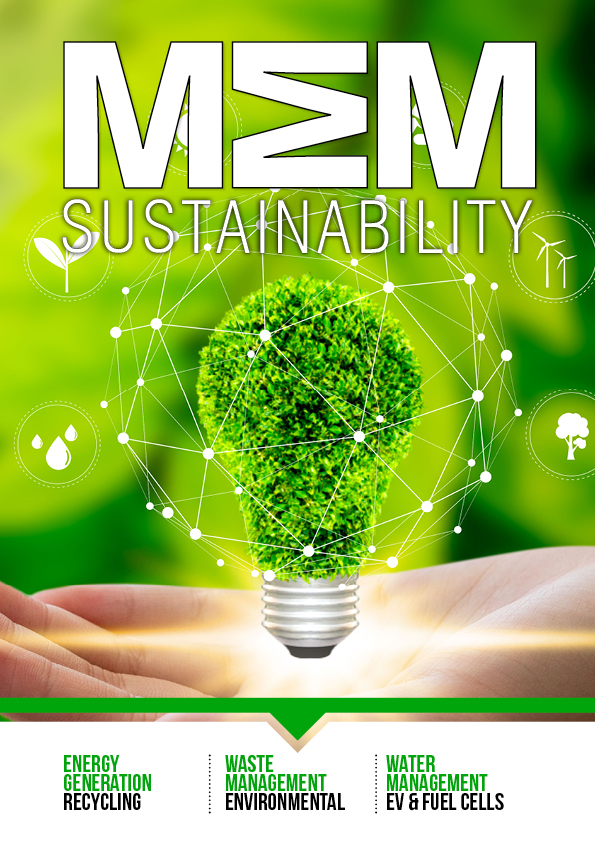Despite a recent rise in demand and production capacity, the manufacturing industry’s future remains uncertain, shaped by supply chain disruptions, skill shortages, rising costs, and tightening regulations. Managing these complexities highlights a central challenge: addressing the waste created throughout the production process.
Efficient waste management across intricate supply chains is a persistent issue. A YouGov survey[1] reveals that large manufacturers prioritise revenue growth (67%) and cost efficiency (65%) over sustainability (39%), leaving many at a crossroads.
To stay competitive, drive sustainability and become waste efficient manufacturers must consider five emerging trends:
- Corporate Social Responsibility (CSR): Businesses face increasing pressure to reduce carbon emissions and waste, not just internally but throughout their supply chains.
- Circular Economy: Transitioning from linear consumption to a circular approach extends material life; through reuse, recycling and recovery.
- Data & Digitalisation: Improved data capture and analysis enables to target solutions for waste reduction, with 27% of surveyed manufacturers citing data support as critical to sustainability.
- Legislative Changes: Regulations like packaging Extended Producer Responsibility (pEPR) will incentivise packaging design for recyclability. [SR1]
- Competitive Innovation: Investment in infrastructure and technology is vital, with 39% of manufacturers identifying tech access as a key driver of sustainability efforts.
Waste management goes beyond the bins
Manufacturers generate diverse waste, including complex and hazardous streams. Continuous operations leave little time to assess supply chains for waste reduction opportunities, while improper disposal complicates efforts. Effective waste management involves streamlining processes across a product’s lifecycle, from design to end-of-life, unlocking opportunities for recycling, reuse, and resale.
Manufacturing Waste Solutions simplifies these challenges with bespoke, end-to-end services tailored to manufacturing needs. Whether it’s operating waste facilities, managing hazardous materials, or training staff, our expertise helps you remain compliant, cost efficient and sustainable. [SR1]
Tackling Material Waste: From Design to Disposal
The challenge lies in balancing production efficiency with waste minimisation. A successful waste management solution should streamline processes across the supply chain, from product design to end-of-life management.
Product Design: Choices about materials, size, and packaging during product design significantly impact waste generation. Using recyclable materials and optimising dimensions can simplify recovery and recycling efforts as well as mitigate associated legislation driven costs.
Manufacturing and Assembly: Lean manufacturing principles, such as value stream mapping, continuous improvement, Just-in-Time (JIT) production, 5S methodology, pull production, and Kanban systems, help minimize waste and improve efficiency.
Quality Control: Increasing inspection frequency and points can reduce reject batches, improving overall efficiency and lowering production costs.
Packaging: Right-sizing packaging and using recyclable materials reduce waste per product. Reducing single-use plastics and opting for recycled plastic can further enhance sustainability.
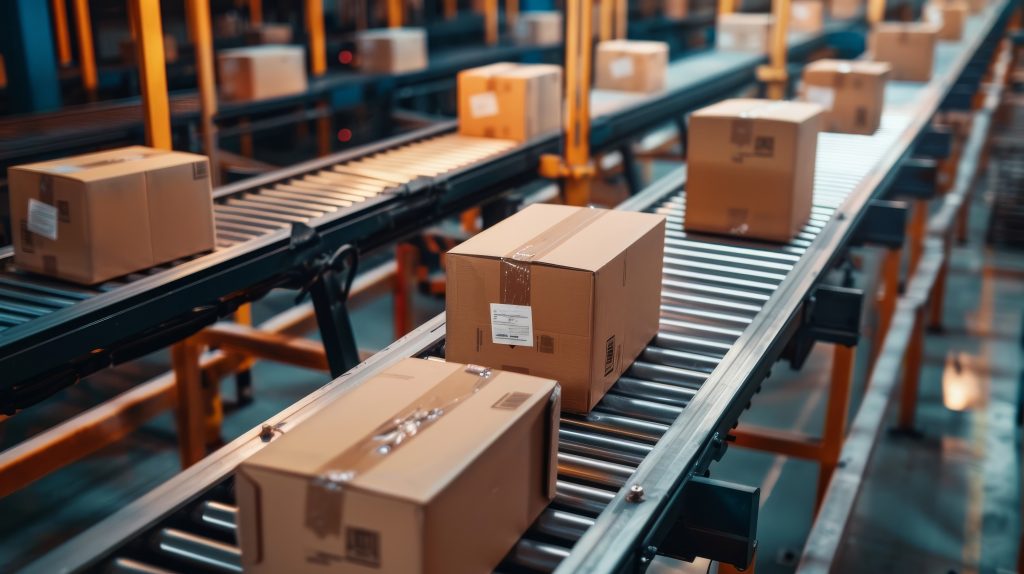
End-of-Life Management: Managing material waste sustainably is essential. Segregating waste, training staff, and implementing clear signage can reduce contamination and improve recycling rates. Circular principles and partnerships can repurpose waste into new products.
Earn Rebates from Recycled Materials
Recyclable materials can be traded as commodities. Manufacturers can attract higher revenues by compacting and presenting waste material for recycling in bales. Specialist equipment and flexible finance options can help maximise value from waste.
“Biffa has helped us successfully keep our site cost neutral for five years running. Their innovative strategies and dedicated support have truly made a difference in our operations and reduced our environmental footprint.” – Britvic GB, Camilla Stanley, FM Category Manager, PLC Procurement
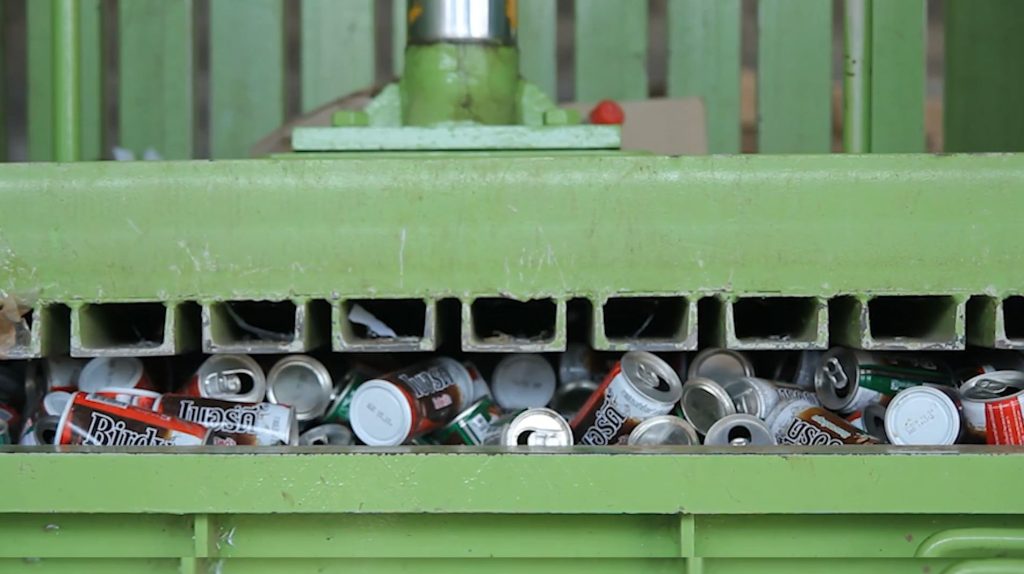
Special Requirements – Hazardous Waste
Not all waste can be safely reused or sold for rebate through the normal channels. Hazardous waste – bulk liquids or clinical waste, for example – must be processed and disposed of carefully and compliantly to ensure no contamination of people, animals or environments. Despite the complexity of hazardous waste, there are still opportunities to reuse and recycle. Cutting-edge treatment facilities can neutralise even the most challenging materials including substances like aerosols, and paints to enable the recovery and reuse of valuable materials that would otherwise be wasted.

Identifying and classifying waste streams is critical to ensure hazardous waste can be safely collected and transported for processing. Our skilled chemists can analyse both onsite and at our own facilities, as well as offering accredited services for treatment and disposal.
As well as training teams on waste compliance in line with the strict regulations. “Biffa’s team of technical experts seamlessly handled Britvic’s liquid waste, along with the requisite supporting waste management documents, identification and efficient tanker collection and recycling. Biffa helped with process alignment and focused on recovering as much of the waste as possible, all while guaranteeing environmental compliance and safe disposal. Their dedication to provide efficient and sustainable waste management has been invaluable to our soft drinks business and process operations.” Steve Dorrington, Process Lead Engineer at Britvic
Looking into Legislation
The pursuit of sustainability and the transition to a more circular economy is central to waste legislation and has wide-ranging impacts for manufacturers across a variety of sub-sectors. New regulations on carbon emissions, data tracking and reporting, a resource management mean manufacturers must reconsider many of their processes, which in turn impact how they manage their waste. Emissions Trading Scheme (ETS) The UK ETS aims to reduce fossil-derived carbon emissions. From 2028, it will include emissions from Energy from Waste (EFW) and incineration plants, impacting manufacturers using these disposal methods.
Digital Waste Tracking (DWT) DWT will establish a digitized approach to track materials from cradle to grave, replacing the existing paper-based system. Manufacturers must adapt to comply with this new process.
Extended Producer Responsibility (EPR) EPR shifts the financial burden of packaging disposal to producers. Manufacturers must submit extensive data sets on packaging usage to calculate fees based on recyclability.
Plastic Packaging Tax (PPT) The PPT applies to plastic with less than 30% recycled content. Changes in April 2023 indicate that PPT terms will likely increase over time.
Simpler Recycling From March 2025, companies with 10+ employees must separate dry recyclables and food waste for segregated collections. This legislation aims to divert waste from landfill and increase recycling rates.
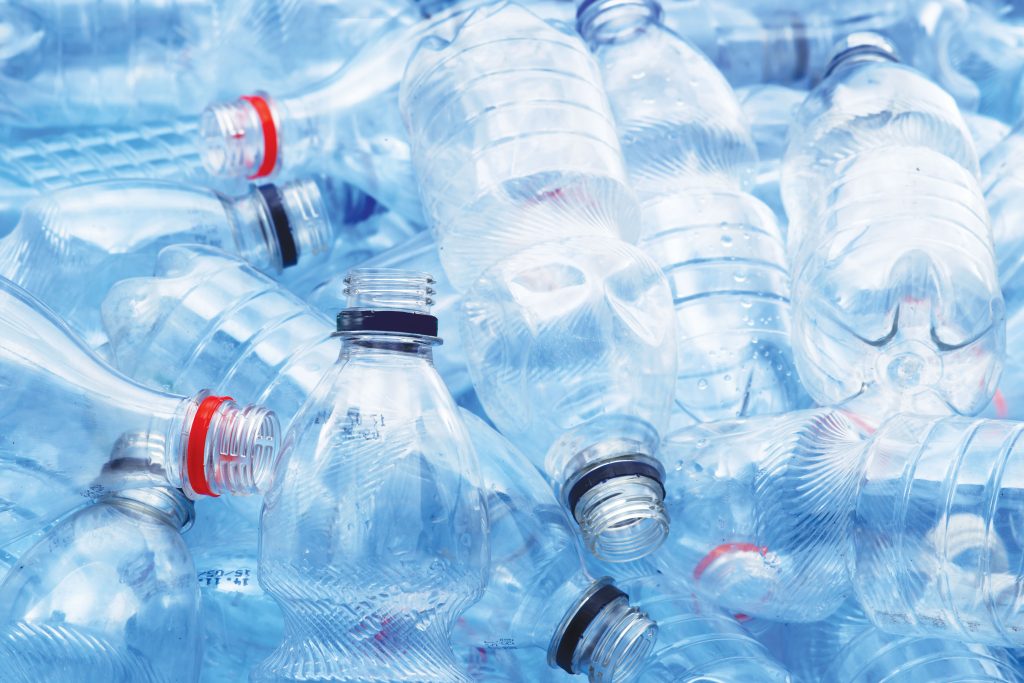
Staying ahead of regulation
Adapting to an evolving regulatory landscape can be challenging. That’s why our experts guide manufacturers through these changes, ensuring waste processes remain efficient, compliant, and future-ready.
A Specialist Solution for Managing Manufacturing Waste “Manufacturers face evolving challenges. So, we continually invest in our services and innovations to meet their needs – all in one place. Manufacturing Waste Solutions is a data-led approach and makes a promise of tangible, measurable savings and revenue to help businesses achieve their ESG goals and unlock new value.”
Gavin Williams, Managing Director, Specialist Services
How We Can Help You
Establishing Goals Upfront
We collaborate closely with manufacturers to devise customised, cost-effective plans tailored to their business needs. By embedding ourselves in your operations, we understand your goals across waste management, operations, health and safety, and sustainability.
Using these insights, we drive priorities and objectives, identifying innovative ways to improve recycling, reduce costs, manage resources, ensure compliance, and transform waste into revenue streams.
Our approach
To create the best solution, we start with a comprehensive audit. Sector experts conduct a full walk-around of your premises, charting the entire waste lifecycle. This process explores areas like material delivery, excess waste points, and operational practices that hinder reuse and recycling.
Delivering with our promise to you
Before contracts are signed, we deliver a detailed proposal outlining identified sustainability improvements, potential savings, and projected value over the first two years. Actionable, clear and tangible insight – so you know how we will deliver. It doesn’t stop there; we’ll be by your side throughout, with regular forecasting, quarterly reviews to identify new opportunities and on-site operatives, readily available to support action plans.
